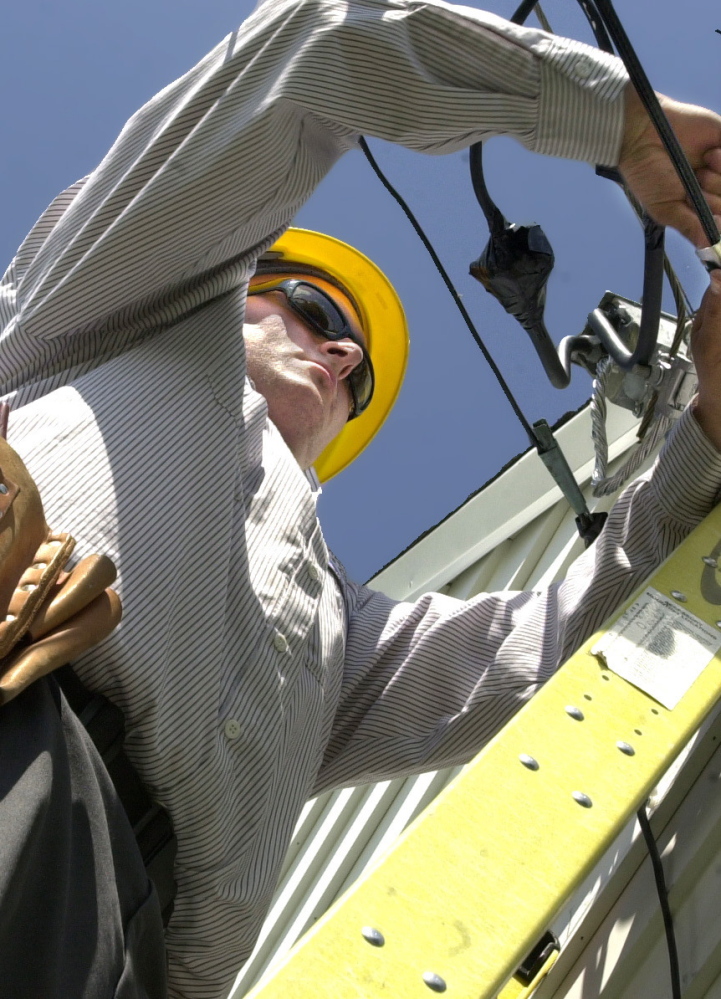FALMOUTH — For the last 18 months, I’ve had the good fortune of working alongside Maine community and business leaders on the state Broadband Capacity Building Task Force. The task force was formed to develop recommendations to stimulate and expand the use of broadband technology in Maine within the sectors of economic development, health care, education and state and local government.
The working group recently published a report, “Broadband – The Road to Maine’s Future,” with its recommendations outlining how broadband can significantly improve the state’s economic and social infrastructure. Maine planning and research firm Planning Decisions Inc. estimates that if all recommendations are adopted, the state would add 11,000 jobs, $500 million in new income and $70 million in state and local tax revenue over the next 10 years.
Faster Internet can do all that, you ask? It can, and I’ve seen it firsthand in Chattanooga, Tenn., where my company, Unum, has a home office.
In 2010, Chattanooga surprised everyone by completing America’s first communitywide broadband network capable of delivering speeds of up to 1,000 megabits in a 600-square-mile area that includes a population of 300,000 people.
As a result, Chattanooga’s broadband network has aided in the recruitment of businesses, attracted new talent to the city and dramatically enhanced its entrepreneurial climate in a way that has helped create thousands of new family-wage jobs in a range of enterprises.
Here in Maine, only 41 percent of businesses have a website, while 97 percent of consumers look online for goods and services. The task force has recommended a three-year tax credit for Internet-related staff training and marketing expenditures to small and medium-sized businesses to help move more companies online.
High-speed broadband expansion will give Maine businesses the ability to communicate rapidly with customers, suppliers, allied businesses and researchers worldwide. That connectivity is the foundation that helps new ideas and innovations come to life, creating new jobs and attracting talented workers to Maine.
Health care providers will benefit, as well. The quick and reliable transfer of large amounts of data over the Internet will help rural hospitals communicate with specialists from across the state to diagnose problems.
Yet Maine has a shortage of skilled data analysts. The task force has recommended expanding the talent pool of health data specialists by upgrading data competency in elementary and high schools, and expanding health data offerings at the college level.
Broadband in our schools will empower Maine students to control and accelerate the pace of their learning, and give them access to the most talented teachers in the world.
In an effort to build on the success of Maine’s laptop initiatives that have helped improve student test scores, the task force has recommended expanding the laptop program to all students in grades K-12, and to pay for it by switching to digital textbooks, which will complement teacher instruction.
Broadband expansion in Maine will also save tax dollars by shifting state and local government administration online. A fourth recommendation is to expand the use of InforMe, the public-private state Internet provider, to reduce the rate of state and local government administrative spending per person by 25 percent in 10 years.
For me, a fully connected Maine is a Maine that is attractive as a place to live, work, and play; that is growing in jobs and income; that has reduced the cost of living, the cost of health care and the cost of government; and that provides individuals with choices at work, at school, in health care and in dealing with government.
It’s difficult to argue against the merits of broadband expansion. But to make it a reality, we all must get involved. As citizens, we need to build demand for it by asking broadband suppliers for service. And our government must be prudent with public money by being open to least-cost, but appropriate, technology solutions.
See the complete broadband task force report and recommendations online at Maine.gov/connectme, and learn how broadband can have a significant impact on the Maine economy and people of all ages.
— Special to the Telegram
Copy the Story LinkSend questions/comments to the editors.



Success. Please wait for the page to reload. If the page does not reload within 5 seconds, please refresh the page.
Enter your email and password to access comments.
Hi, to comment on stories you must . This profile is in addition to your subscription and website login.
Already have a commenting profile? .
Invalid username/password.
Please check your email to confirm and complete your registration.
Only subscribers are eligible to post comments. Please subscribe or login first for digital access. Here’s why.
Use the form below to reset your password. When you've submitted your account email, we will send an email with a reset code.